Other than The Giving Tree and a few of his poems that are blatantly serious, anyone can tell that Shel Silverstein writes silly poems from just the covers of his books. We love his nonsensical stories about people who have pet snowballs that wet the bed and the guy who ate just one little drumstick (a drum drumstick) at a picnic. Some of his poems are just plain, good, silly fun with no moral at all. However, hidden inside some of those goofy poems are some serious life lessons for children and adults alike. Out of the many, here are just a few.
1. Be Patient With Yourself. You’ll Get There
In the poem, “Melinda Mae,” a girl decides to eat a whale, and she steady works toward her goal. In the end, she finally finishes the whale. It takes her eighty-nine years, but she does it! As yucky a goal as it is, she never gives up and eventually accomplishes her goal. Our goals, hopefully better than eating a whale, may take a long time to achieve, but we can get there.
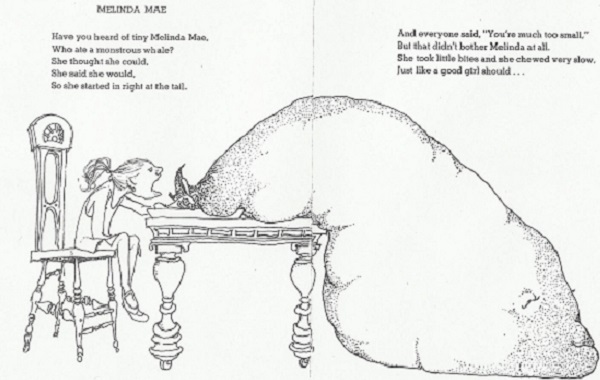
Source: Christmas44
Even though “Alphabalance” is literally talking about balancing the alphabet, we can easily see the equivalent to maintaining balance in our lives. I often feel as overwhelmed as the guy holding all those letters. Also, I admit to giggling to myself. Grab a T and take a P–I don’t care how old you are. That’s funny. But hopefully we can learn to cope and still take the time.
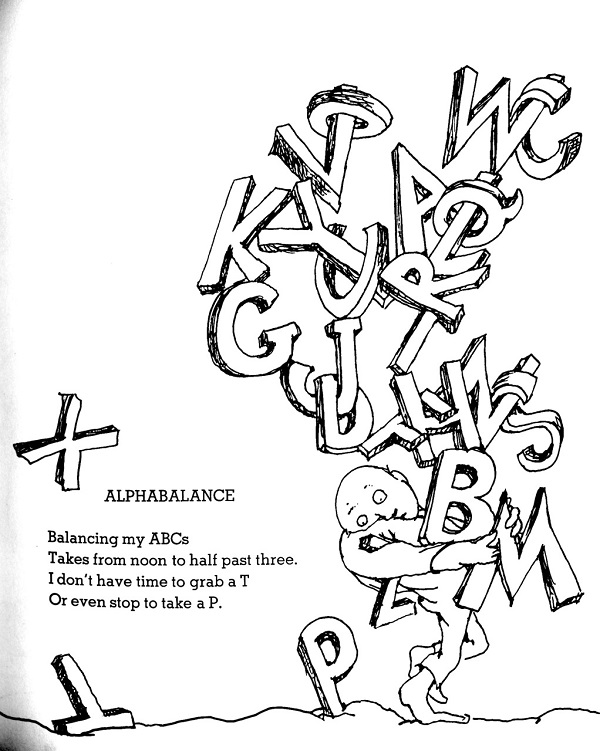
Source: Tumblr
Then again, other poems like “Diving Board” push for action and not just waiting for something to happen. I know I’ve seen that kid who has been standing on the diving board for 5 minutes and wanted to shout, “Go already!”
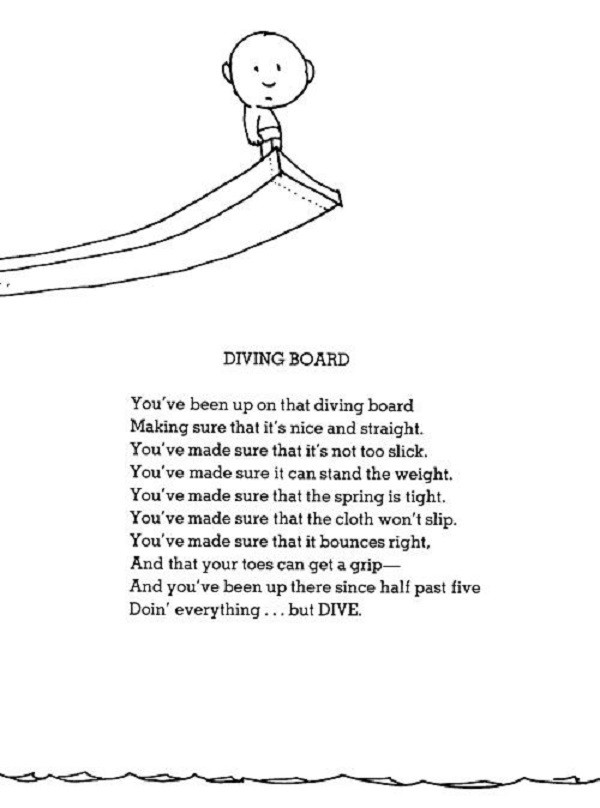
Source: Pinterest
The same action concept applies in “Magic.” You can’t just wait for amazing things to happen in your life. Make them happen.
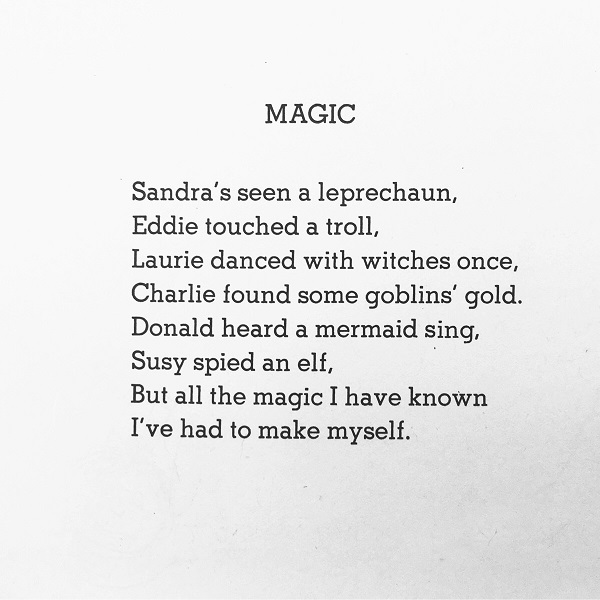
Source: Imgur
2. Don’t Obsess Over Material Things
Shel Silverstein’s poems often tell us that material goods have little lasting value. In “The Garden,” Ol’ man Simon has a special garden that grows diamonds, sapphires, rubies, gold, opal, pearls, and other jewels. And all he sits and dreams about is one real peach. While they sure do help, riches won’t give you everything you really need and want in life.

Source: Huffington Post
Similarly, in the aptly named poem “Lester,” Lester gets a magic wish, which he uses to wish for more wishes. He keeps multiplying his wishes until he has “five billion, seven million, eighteen thousand thirty four.” Still he wants more and more. When he dies, he is found surrounded by his wishes still shiny and new. I imagine this is how Scrooge would have died if he hadn’t been saved by the ghosts: alone and in the company of cold, worthless wealth.

Source: Pinterest
3. Accept Those Who Are Different
Silverstein’s poem “Colors” takes a different approach to color by talking about the range of colors we are, including the colors inside.

Source: We Heart It
At first glance “Hector the Collector” may seem to contradict the lesson that we shouldn’t cling to material objects, but the point of “Hector the Collector” is that while some people see junk, others see treasure, history, and worth. Hector teaches us to value everything, or rather everyone, for inherent worth, despite the outward condition. But in terms of physical things in the real world, I don’t recommend hoarding. Just saying.
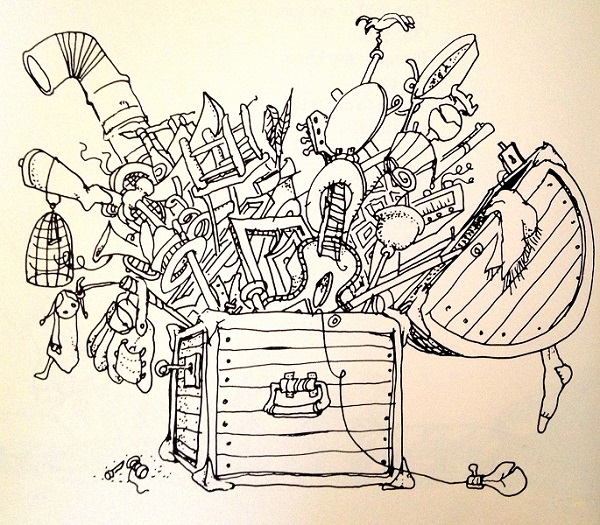
Source: Redefined Living
Sometimes to accept others, we need to see the world from a different perspective. In “New World,” the narrator flips upside down and sees the buildings dangle from the sky and buses float, and I have to agree with her that a new angle, as she says, “Now and then it’s nice to see.”
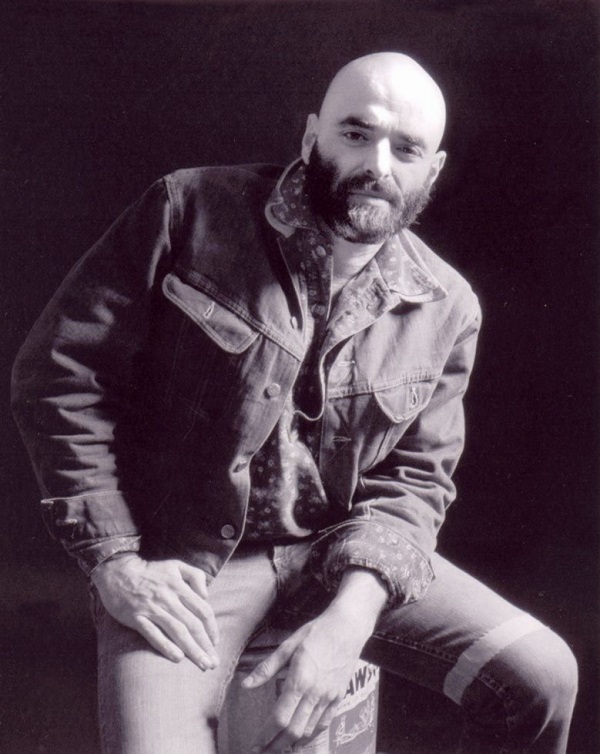
Source: MTV
4. Use Your Creativity
As a writer, I can relate to the plight mentioned in “Writer Waiting.” Some days I wish the computer would think completely for me. Today’s technology is incredible and has so much potential to do amazing things, but unless we use our own creativity inside us, which ultimately cannot be replaced by technology, that computer is an just an expensive, shiny status symbol.
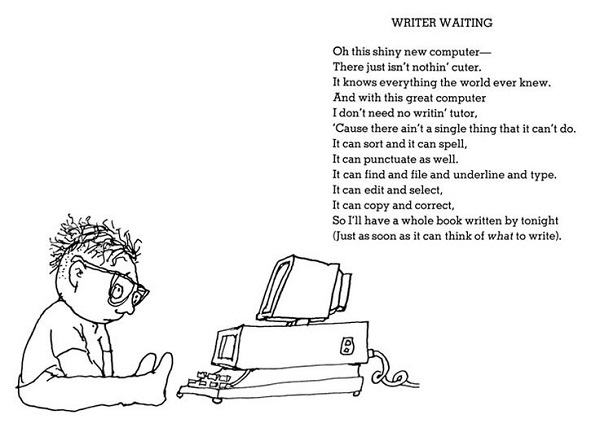
Source: Pinterest
In “Ourchestra,” we learn that we don’t need pricey, fancy instruments to have a good time making music. It helps if your nose happens to be shaped like a clarinet, like the illustration. But in reality, some times we don’t need expensive equipment. We don’t have to spend a lot of money for what we need. We can use what we have.

Source: Quote Addicts
5. Be Kind
Growing up, my family played games just so we could spend time together. It was more like background noise to the real main event: our conversation. In my husband’s family, they play to draw blood. “Hug O War” came into my mind. Can’t we all just get along?

Source: A Human First
We all want the perfect mate. And wouldn’t it be nice if they did all the chores and work around the house? No, it would not be nice. It would be mean, which is why the person leaves at the end of the poem. From “My Rules,” we learn that if you want to have a happy relationship, share the load and be nice to your partner, people.
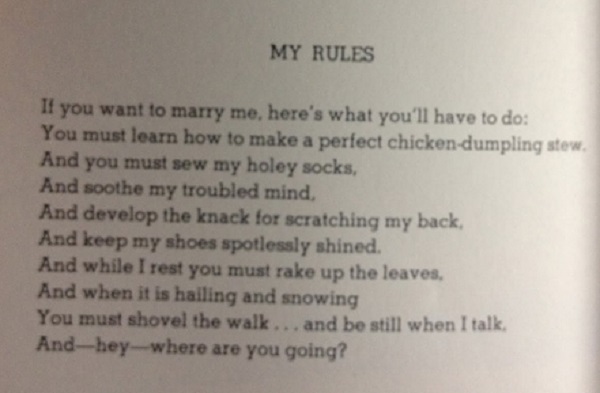
Source: Tim In Phuket
Every parent and kid alike can see the truth and slightly painful humor in “Sharing.” It’s easy to share . . . when it’s other people’s things, but it’s much harder to learn to share what you have with others.
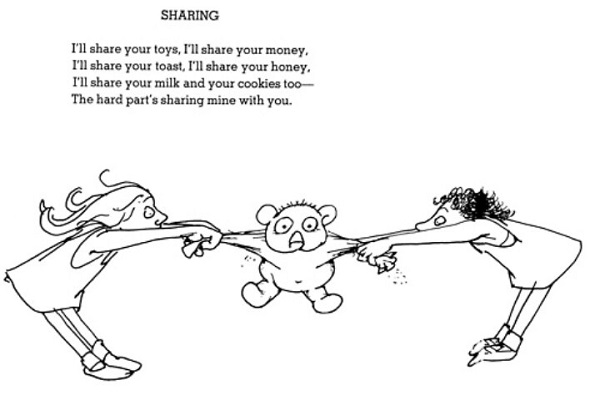
Source: Sharing
6. Ignore Naysayers When Pursuing Your Dreams
I wonder how many people told Shel Silverstein not to become a writer/songwriter/illustrator. I wonder if “Listen to the Mustn’ts” was motivated by what he heard from the Mustn’ts in his life. Not many people have achieved success in writing poems like Shel Silverstein. If anyone can tell you anything is possible in pursuing your dreams, it would probably be him.
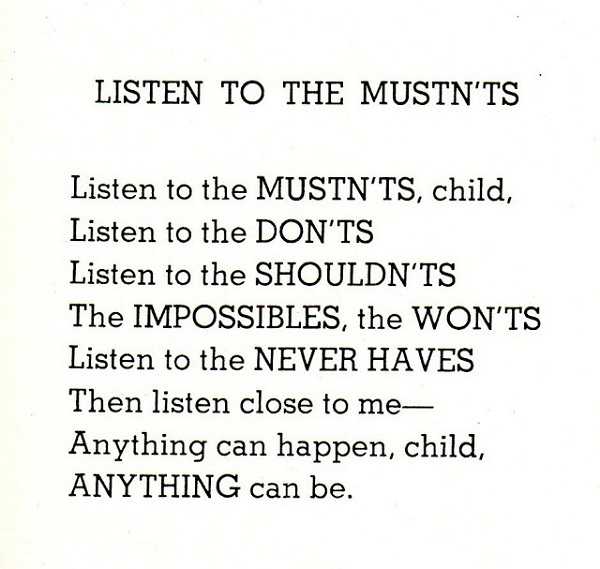
Source: Eden Burnin
When chasing your dreams, you’ll come across a lot of people from “Woulda-Coulda-Shoulda.” These are people who only dreamed and didn’t act to make those dreams come true. I guess you can listen to them, if only to gather motivation to keep going, because I know I don’t want to be a Woulda-Coulda-Shoulda at the end of my life.
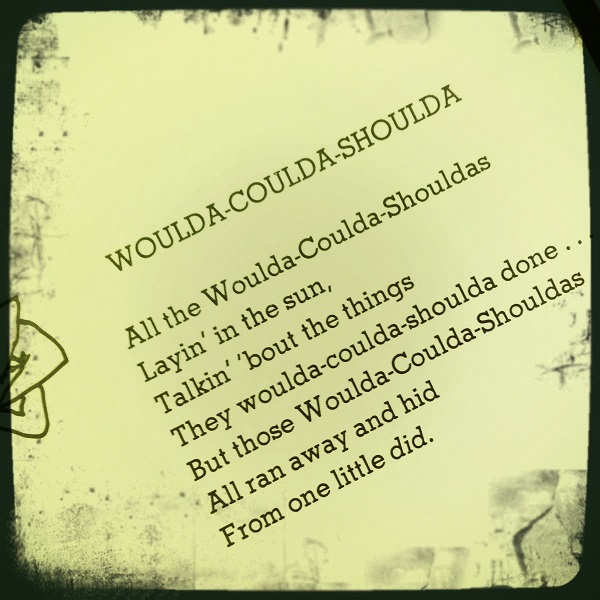
Source: Pinterest
Not all of Shel Silverstein’s poems are goofy with hidden lesson. “The Voice” clearly states its message: listen to the voice inside to determine what is right for you, even if people of authority say otherwise. Perhaps he skipped the comical relief and went straight to point on this one because it’s such an important one to make.
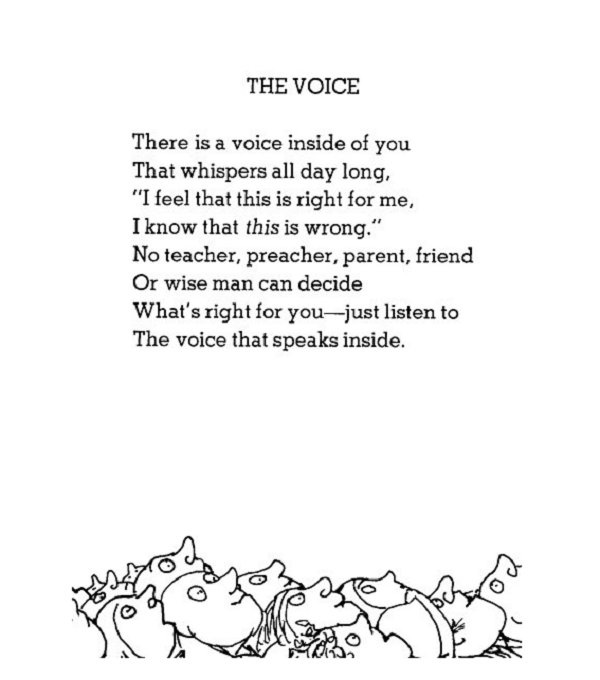
Source: Mindpod Network
What are things you have learned from Shel Silverstein’s poems? Which of his poems or books is your favorite?
YouTube Channel: farpman
Featured image via Waldina



